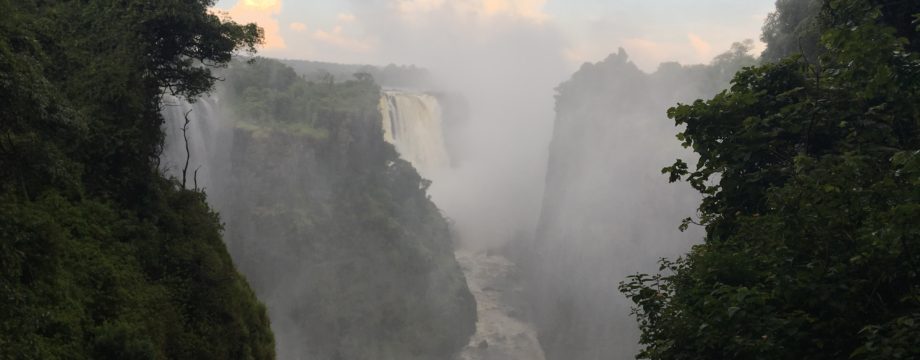This article was originally published on Cache Up NB. It has been mirrored here for archive purposes only.
As a participant in a hobby such as geocaching, I have found myself looking around at the various people who play this “game” and have noticed such a wide span of varying opinion when it comes to what people perceive to be the “rules” of geocaching. I found myself looking at this hobby and noticing how it is so fundamentally different than many other ones out there.
For starters, regardless of what people want to say, geocaching technically has no “rules”. It’s not like professional hockey where there are definitive rules in place (with minor differences depending on leagues) and when you break a rule, you are penalized or are deemed to have “cheated”. If an athlete takes steroids, wins their match, and then gets caught, they have “cheated” and thusly are penalized. The rules are definitive and laid out for everyone to know. You can argue the rules all you want, but the rules are the rules and if you want to play that game, you have to abide by them or you aren’t allowed to play.
Geocaching is not so cut and dry. The “rules” by which we follow while participating in this hobby are few and far between. Many view the “guidelines” provided by GC.com as the official rules, but they are merely the listing service.
I provide a very basic example. Puzzle caches. A very common perceived “rule” is that you are not allowed to log a find on a puzzle cache that you did not solve the puzzle for. Since logging is managed by Groundspeak, they have the right to say what can be and can’t be logged. If you read their official write-up about logging, you see nothing about solving puzzles. The same could be said for multi’s and Wherigo caches which have a final location but have other stages to go through to get to the final container. Some in the geocaching community would perceive the logging of a puzzle/multi/Wherigo that you didn’t solve as cheating. Cache owners of these caches might even go as far as to delete the log saying you cheated and can’t log it unless you do it the way you’re supposed to.
How about logging a find on an archived cache? Some cachers say this is cheating as well since the cache is no longer active and therefore you can’t log a find on it. For both this and the previous examples, if I find the physical container and sign my name, I have met the requirements of Groundspeak’s logging so I should be able to log it shouldn’t I? It depends on who you ask. Depending on the personality type, the answer you get back from people will be on both ends of the spectrum. Cacher’s who perceive these grandfathered “guidelines” as the official rules will defend them tooth and nail. Others will say that you’re still finding the container and so it’s still a find.
When all is said and done, the one thing that makes geocaching so unique with regards to how you play is that there are really no definitive rules. Yes, there are the listing guidelines, and yes there are a few specific rules that Groundspeak has laid out but those are for with it’s website only. It does not govern the sport of geocaching as a whole. So who does “manage” the sport? Who sets the rules and who defines how you should play it? Simple: you do.
This game/sport/hobby is unique in that the “rules” are defined by you, not someone else. You follow what you need to as defined by GC/OC/WhateverC to list and log, but then outside of that, how you choose to move forward is entirely up to you. Yes, there are general guidelines that most people follow, but in the end, it’s entirely up to you what you believe to be acceptable and unacceptable actions. You are the one that decides if you should log a find on a puzzle cache you didn’t solve. It is you who decides whether to log your own hides as finds. It is entirely up to you how you wish to play within the realm of geocaching. There will be other players who may perceive some of the actions you take as cheating and others will perceive some of your actions as regular game play. In the world of geocaching, if you were to play it based on the perceived rules of everyone else around you, you would probably never get past 10 finds.
I may not agree with things some cachers do, and I may perceive certain actions to be considered cheating, or in poor sport, but it is not my responsibility to police, or attempt to dictate to someone else how they should play this game. I’m free to debate the topic amongst other cachers. I’m free to discuss my own opinions on the subject. But I am not free to attempt to dictate how someone else should play a game that does not have definitive rules. It is not mine, or anyone else’s responsibility to outwardly tell people they are playing the game wrong or cheating simply because I do not agree with actions they are taking. I might try and offer friendly advice in cases where it might seem appropriate but that is about as far as I believe someone should go.
Instead, it is my responsibility to play the game in a way which I feel is appropriate and comfortable for me. If others don’t like the way I play, that really isn’t my problem. It’s theirs. If others don’t like the t-shirt I wear, or the music I listen to, the car I drive, the place I work, the schools I went to, the food I eat, the friends I have, the relationships I engage in, the political parties I support, or any other things that I choose to do, how is that my problem? It isn’t. It’s no different with geocaching.
People need to realize that not everyone out there shares the same point of view as you do. Just because you see things a certain way does not mean everyone sees it the same. This is true in everything, not just geocaching. So the next time you see a geocacher do something that you perceive to be questionable, take a moment and think about the fact that they are playing the game in the way they perceive it to be played. Not yours.



24 Responses to Geocaching: There Are No Rules